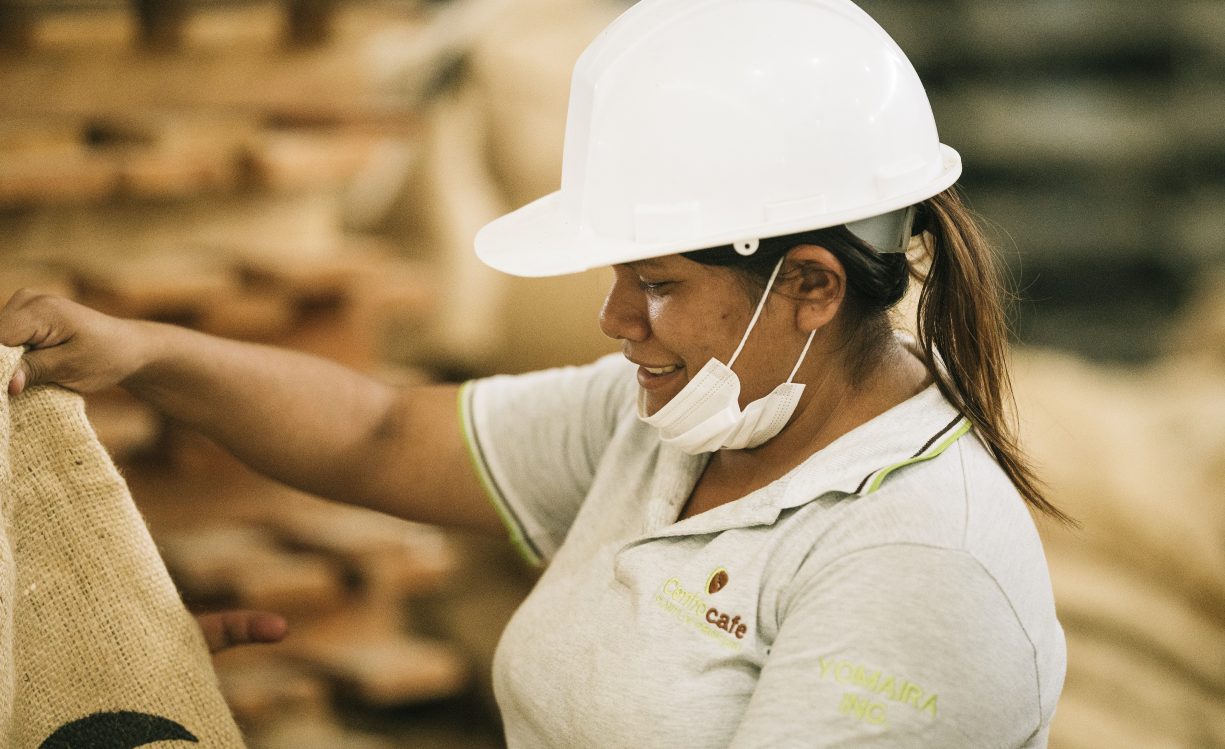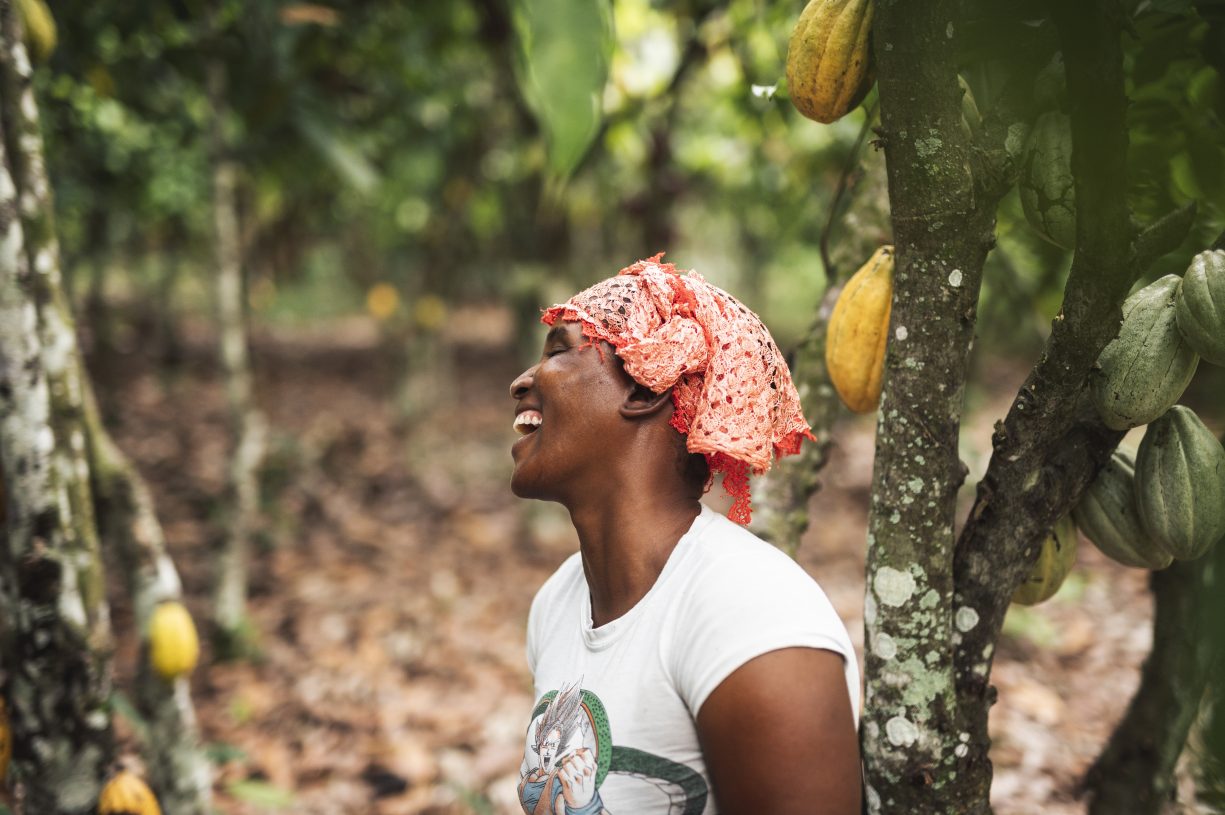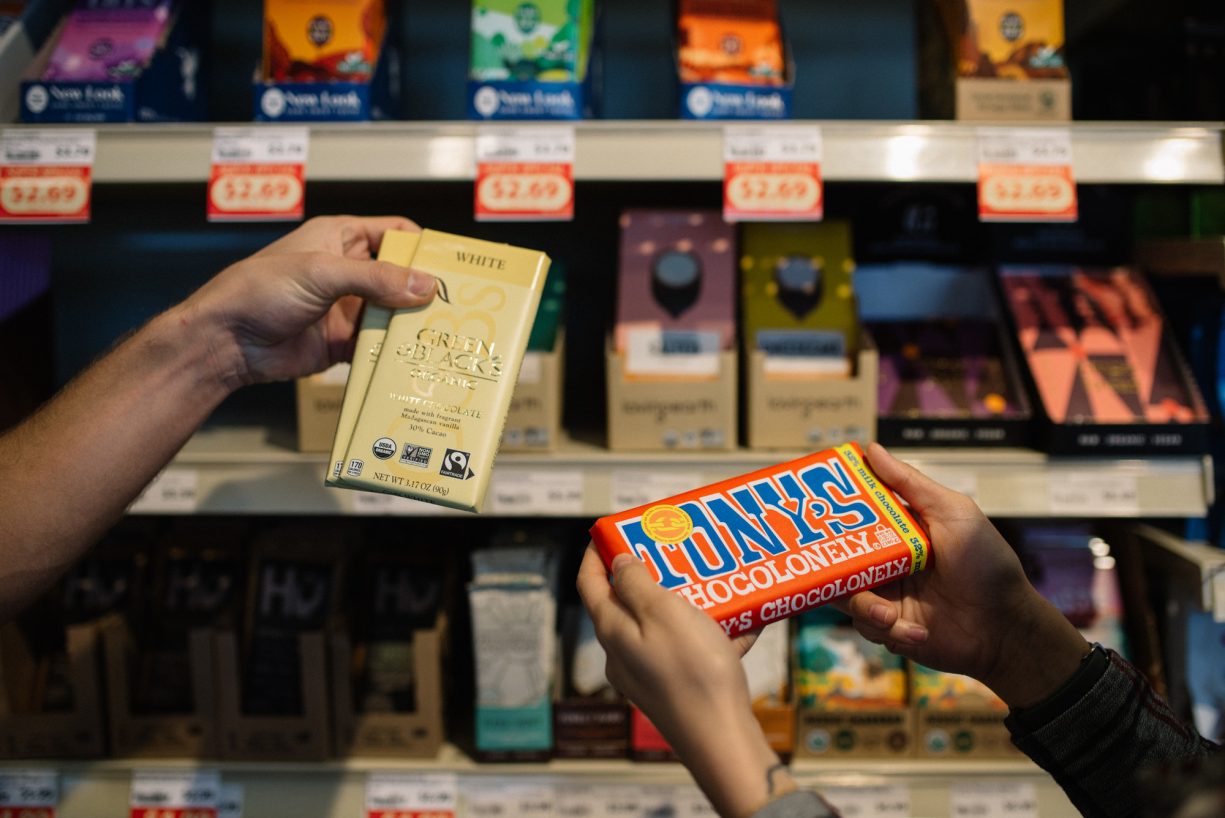What is fair trade certification?

A growing number of businesses, advocacy organizations, and shoppers are choosing fair trade certification for their products and encouraging others to do the same. With their support, more than 2 million Fairtrade farmers and workers around the world have more partners than ever in achieving what we all want: decent livelihoods and the ability to decide on our own futures.
A critical step in rebalancing the power of our global trade system is fair trade certification. But what does it mean to be “Fairtrade?” And what does a certification like Fairtrade really do? Let’s break it down.
Why is it important to be fair trade certified?
Smallholder farmers are responsible for so many products we enjoy every day – like cocoa and coffee – but often don’t get to experience the benefits of trade because the global food trade system is rigged against them. Exploitation of farmers and farm workers is a centuries-old injustice, and one way that it manifests today is unfairly low prices that make it difficult for farmers to make a decent living from their work. This is something that we all have the responsibility to address.
Partnership with and certification by a reputable, trusted fair trade organization is a way to both prioritize the farmers and workers in your supply chains and show customers that you are putting people and the planet first.
How does Fairtrade’s certification work?
As part of the Fairtrade International system, Fairtrade America works to address trade injustice at the economic, social and environmental level. We partner with businesses in each of these areas through…
- Rigorous, and regularly updated, Fairtrade Standards that set fairer terms of trade, from the farm to the supermarket shelf
- A unique pricing model that offers farmers more financial security in the face of ever-changing market prices
- Extra Fairtrade Premium funds that farmers themselves re-invest in development projects
- Independent, third-party auditing by FLOCERT to ensure compliance with the Fairtrade Standards
- A truly global network that includes farmer participation in decision-making throughout the Fairtrade International system

Pricing and Premiums promote stability and sustainability
The ingredients in Fairtrade certified products are bought at a Fairtrade Minimum Price, a number that is calculated in partnership with farmers and researchers around the globe. It serves as a safety net for Fairtrade farmers when volatile market prices fall below the cost of production.
But that’s not where our work stops. In addition to receiving a guaranteed Minimum Price, farmers also get a Fairtrade Premium that is generated by sales of Fairtrade certified products around the world. This Premium is re-invested by farmers themselves, via democratically organized cooperatives, into a variety of projects that they develop to strengthen their businesses, support their communities, and protect the environment they depend on for their livelihoods.
Starting with the issue of unsustainable, unreliable, and unfair pricing, Fairtrade certification also supports farmer communities across a host of social and environmental issues. Our work extends to issues like gender equality, in particular the empowerment of women farmers, the eradication of child labor and violations of workers’ rights, and even the adoption of climate-friendly agricultural practices and environmental protection projects.

Supply chain transparency and auditing
It’s not enough to just say that you’re doing the right thing – assurance and oversight are key to making trade fairer. That’s why our Fairtrade certification relies on regular auditing through the independent, third-party auditor, FLOCERT. Their teams work to ensure that the Fairtrade Standards are being upheld throughout the supply chain and that farmers are getting the benefits promised by participation in the Fairtrade system, all in compliance with the internationally recognized ISEAL Assurance Code.
A global network that collaborates with farmers and workers directly
We believe that farmers know best how to address the needs of their unique communities, geographic regions and agricultural sectors. That’s why the Fairtrade system prioritizes farmers’ voices in our work to reshape a trade system that everyone can benefit from. In fact, farmers and workers have representation at all levels of governance, bringing their perspectives, expertise and entrepreneurial spirit to every part of the system, from their local Producer Organizations to our three regional Producer Networks to the Fairtrade International general assembly where they hold including 50% of the decision-making power.

Certification means fairness to farmers and shoppers
The Fairtrade Mark, our product label, means that the product in a shopper’s cart was created in a way that makes a positive difference for people and the planet. Businesses who invest in fair trade certification for their products are investing in the farmers and workers they source from, supporting a decent living, sustainable agriculture, a fairer balance of power, and community development as a result of economic stability.
It’s more than just a symbol – it’s a promise to people in every part of the supply chain that your company is taking a different approach to trade. Fairtrade certifies trade that is based on partnership not exploitation; a partnership between those growing our food, those selling it and those enjoying it.
Want to learn more?
Our team is ready to connect with you and take the first steps together toward fairer trade for our farmers and workers. Tell us what you want to achieve and we'll see how we can help!
We’re in this together
Fairtrade America partners with brands on the journey to certification and beyond. We can help with everything from finding a certified supply chain to marketing your newly certified product.
Get in Touch





